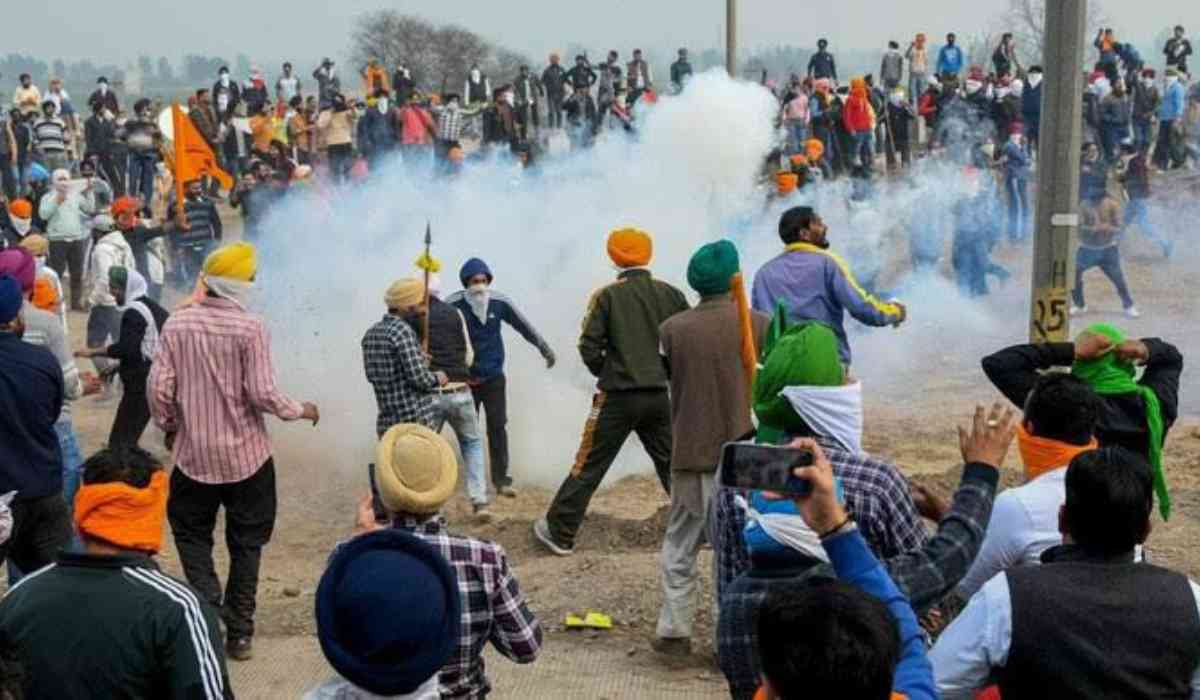On February 13, Punjab Farmers initiated their 'Delhi Chalo' march while encountering heavy barricading at the Haryana-Punjab border and entry points into the National Capital, to emphasize their demands following an inconclusive meeting with two Union ministers.
The farmers are en route to Delhi through the Ambala-Shambhu, Khanauri-Jind, and Dabwali borders. Commencing their march around 10 am from Fatehgarh Sahib, many farmers, accompanied by their tractor trolleys, moved towards Delhi.
5 Quick Recap Points:
1. Haryana Police used tear gas shells when a group of youth participating in the farmers' 'Chalo Delhi' protest march attempted to break through barricades at the Shambhu border in Ambala. They deployed drones to release tear gas shells on farmers attempting to breach barricades at the Punjab-Haryana border. Several farmers were reportedly detained near the Shambhu border. Riot control vehicles, including water cannons, have been deployed at various locations along the Punjab and Haryana borders. Security measures in Delhi have been increased with multiple layers of barricades, concrete barriers, iron nails, and container walls at border points. Protesters also used tractors in an effort to move heavy concrete barriers, with many dispersing into nearby fields to evade the roadblock. Farmer leaders accused the Centre of orchestrating the "attack" on protesters marching towards Delhi, claiming that around 60 individuals were injured due to tear gas shelling at border points. Official reports indicated that 24 police personnel sustained injuries.
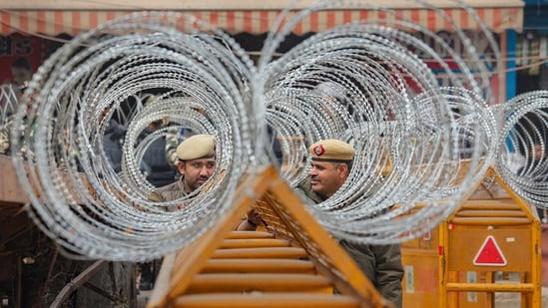
2. Section 144 prohibitory orders were implemented in Delhi and Haryana, with, Delhi Police implementing stringent prohibitory orders for the next 30 days to uphold law and order in the capital and the Haryana government enforcing these restrictions in 15 districts, prohibiting gatherings of five or more individuals and banning demonstrations or marches involving tractor trolleys. Across various districts in Haryana, 64 companies of paramilitary forces and 50 units from the Haryana Police have been deployed, equipped with anti-riot gear and stationed at border areas and sensitive districts. Drones and CCTV cameras are being utilised to monitor potential troublemakers, as per a spokesperson. 50,000 security personnel stationed at Delhi-UP borders. Internet services and bulk SMS was suspended in seven districts: Ambala, Kurukshetra, Kaithal, Jind, Hisar, Fatehabad, and Sirsa.
Check out VYGR Ground Report for more updates
3. Delhi, Noida, and Gurugram experienced severe traffic disruptions due to multiple layers of barricades and stringent border checks amid the ongoing farmers' protest. This led to blocked routes and extensive congestion near Singhu, Ghazipur, and Chilla border points, with the situation expected to persist, particularly in North and East Delhi, on Wednesday. Traffic jams occurred at the outskirts of Delhi bordering Similarly, traffic delays were reported on the Gurugram-Delhi national highway. The Delhi Airport issued an advisory, advising passengers to utilize the metro for timely arrival due to traffic restrictions caused by the farmers' protests at various Delhi borders starting Tuesday. The Delhi Metro Rail Corporation (DMRC) closed the gates of nine stations on Tuesday for security reasons, including Central Secretariat, Rajiv Chowk, Udyog Bhawan, Patel Chowk, Mandi House, Barakhamba Road, Janpath, Khan Market, and Lok Kalyan Marg.
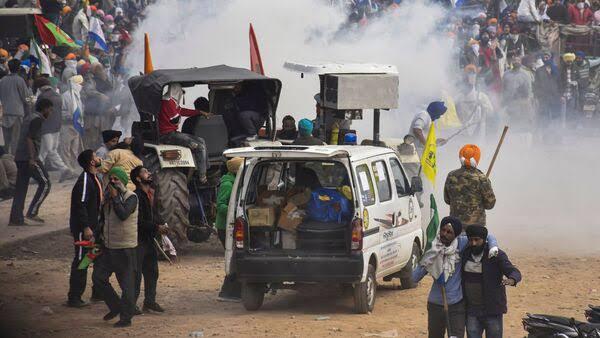
4. The Punjab and Haryana High Court permitted the farmers' protests in the states, affirming their 'right to movement' as citizens of India. During the hearing of two Public Interest Litigations (PILs) concerning the agitation extending from Punjab and Haryana to Delhi, the court underscored the responsibility of state governments to ensure citizens' safety and convenience, urging measures to mitigate any resulting inconvenience.
5. The Delhi government rejected the Centre's proposal to convert Bawana Stadium into a temporary jail for protesting farmers, citing the genuineness of their demands and their constitutional right to peaceful protest. Delhi Home Minister Kailash Gahlot expressed solidarity with the farmers' march and urged the Central Government to engage in dialogue with them to address their legitimate concerns. The All India Forward Bloc (AIFB) strongly criticized the Central government's actions as an attempt to suppress the farmers' protest, condemning them as anti-democratic.
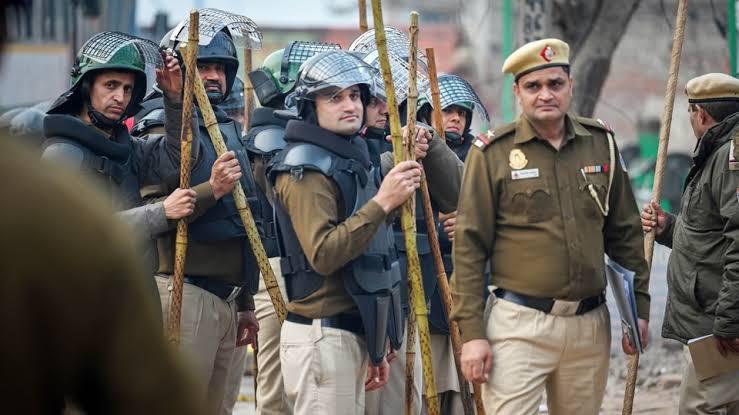
Meanwhile, Congress leader Rahul Gandhi pledged to provide farmers with a legal guarantee of Minimum Support Price (MSP) for crops based on the Swaminathan Commission report if the Congress forms a government at the Centre.
He said “Farmer brothers, today is a historic day!”
“Congress has decided to give legal guarantee of MSP to every farmer on crops as per Swaminathan Commission. This step will change the lives of 15 crore farmer families by ensuring their prosperity,” Gandhi said, calling it the “first guarantee of Congress on the path of justice.”
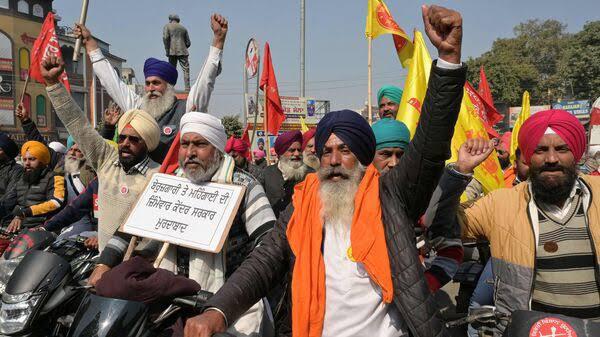
Why are Farmers Protesting?
- Enactment of a law ensuring a minimum support price (MSP), a condition they had stipulated in 2021 when they agreed to end their protest against the now-repealed farm laws.
- Advocating for the implementation of the Swaminathan Commission’s recommendations, provision of pensions for farmers and farm laborers, and the waiver of farm debts.
- The farmers are calling for "justice" for the victims of the Lakhimpur Kheri violence.
Photo: Multiple Sources
(Inputs from Agencies)
©️ Copyright 2024. All Rights Reserved Powered by Vygr Media

